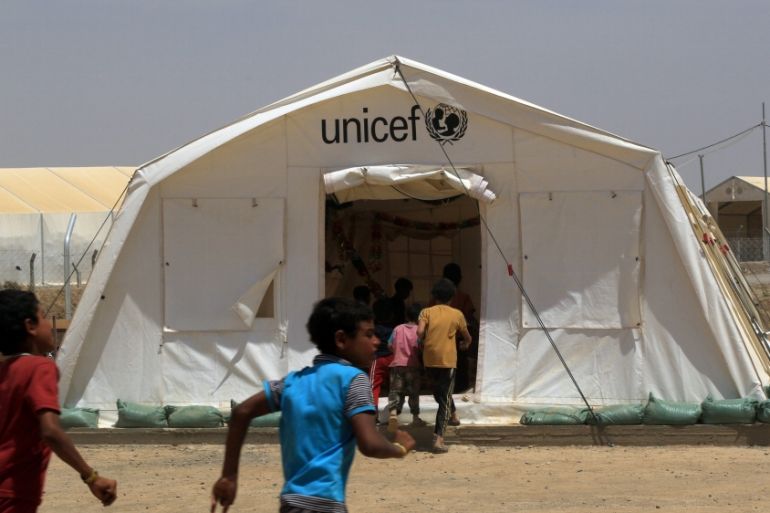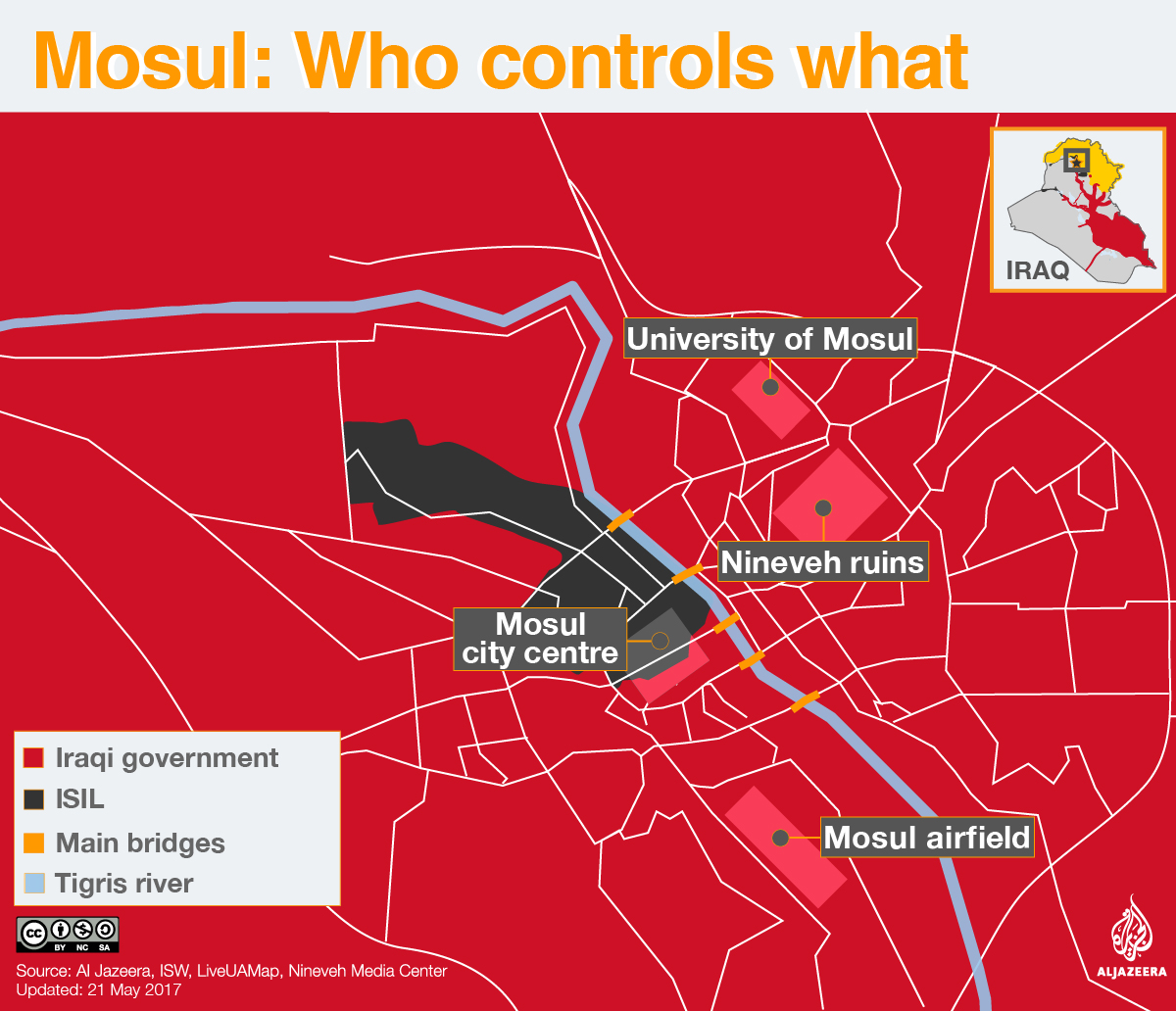Iraq must invest in education to secure its future
The cost of investing in Iraq’s education will be high, but the return of this investment will be immense.

Even though 200,000 people – 85,000 of them children – continue to be trapped in the violence raging in west Mosul’s Old City area, work is ongoing to re-open 47 schools in the areas of west Mosul that were retaken from the Islamic State of Iraq and the Levant (ISIL, also known as ISIS) by Iraqi forces.
I visited east Mosul, which was fully recaptured by Iraqi forces in January this year, after the violence wound down. I spoke to many parents; their one request was for schools to re-open and for their children to finally continue their education after being deprived of it for so long.
Keep reading
list of 4 itemsPhotos: Argentina protesters march against Milei’s public university cuts
The Take: Behind Columbia University’s months of tension
Columbia, NYU, Yale on the boil over Israel’s war on Gaza: What’s going on?
|
|
Since then, many schools in east Mosul are reopened with remarkable success. Although many challenges remain for families living in this section of the city, more than 380,000 children are now back in school.
We have seen this enthusiasm for education in the face of incredibly difficult circumstances across Iraq: in Fallujah and in Ramadi we have seen young children, girls holding hands, step their way through the debris of war to reach their school. And even if there’s no electricity and it’s dark in the classrooms, or there is not enough space, Iraqi children and their teachers go to school every morning.
Children tell us that they see their school like a second home, a place where they can not only study but also play with their friends. Teachers have told us how happy they are to be back in their classrooms, and they have asked for more books, more materials, more training.
READ MORE: Mosul University after ISIL – Damaged but defiant
Just like teachers, Iraqi families are also committed to providing a good education to their children. They know that without education, their children will not be able to achieve their potential, their hopes, their dreams and aspirations.
But a report on “The Costs and Benefits of Education” recently released by the Iraqi Ministry of Education with the support of UNICEF, notes that Iraq spent only 5.7 per cent of its government expenditure on education in the 2015-16 school year, which puts the country on the bottom rank of Middle East countries in any given year.
The report states that a relatively large gender gap remains in Iraq’s education system and adds that children from poor families are more likely to be out of school compared with children from well-off families.
According to the report, only half of Iraq’s internally displaced children have access to school and the cost to Iraq’s economy of having so many children out of school is roughly $1bn in unrealised potential wages.
There is an urgent need to increase investment in the country’s education sector if we do not want to lose one of Iraq’s key accomplishments, namely being a leading country on education in the Middle East.
This can be achieved through a number of concrete steps: improving the efficiency of the educational system; providing more equitable access to educational opportunities; investing more in teachers’ training; rewriting the curricula; and elevating the quality of children’s overall learning outcomes. The economic cost of dropouts and grade repetitions that largely result from academic failure, accounts for almost 20 per cent of the country’s education budget.
While we see Iraqi children lining up to go back to their classrooms, it is a fact that half of the nation’s schools are in need of repair. Many schools in Iraq are currently running on a multiple system – we sometimes see triple or even quadruple shifts in schools.
Iraqi students, who have very limited learning opportunities outside school, are having as little as 10 contact hours of interaction with their teachers on average a week, and this lack of contact is depriving them of quality education. Only 70 per cent of the children who attend the evening shift in their school can pass the national assessment.
Quality education is not entirely about teaching children technical skills; it’s also about making sure that they learn life skills and values. It serves the social function of cultivating a generation that is ready to rebuild a peaceful Iraq. Education has been identified as one of the key conditions for sustainable peace and reconciliation within societies. Just one extra year of schooling can significantly reduce the probability of a young person engaging in violent crimes.
Iraq needs decentralised and community-based management. This needs to be facilitated by school-based grants and a curriculum that encourages personal empowerment and active citizenship as well as facilitating quality learning and employability.
The cost of investing in Iraq’s education will be high, but the return of this investment will be immense.

Peter Hawkins is the UNICEF Representative in Iraq. He has more than 20 years of experience in the humanitarian and international development sector. He previously worked in Afghanistan, Pakistan, Ethiopia and Nigeria.
The views expressed in this article are the author’s own and do not necessarily reflect Al Jazeera’s editorial policy.
